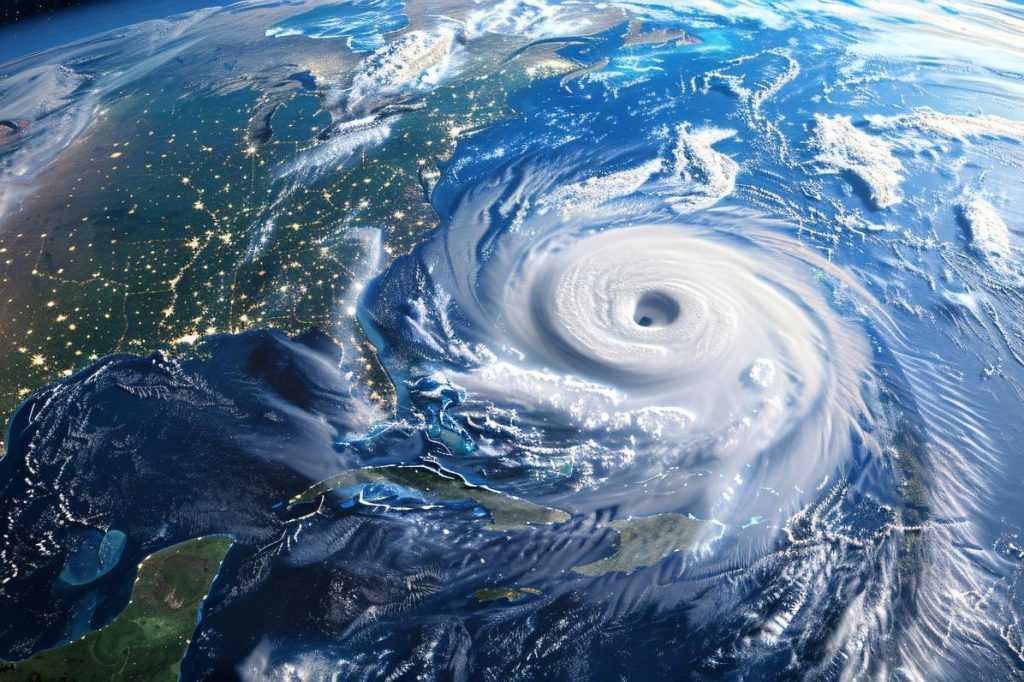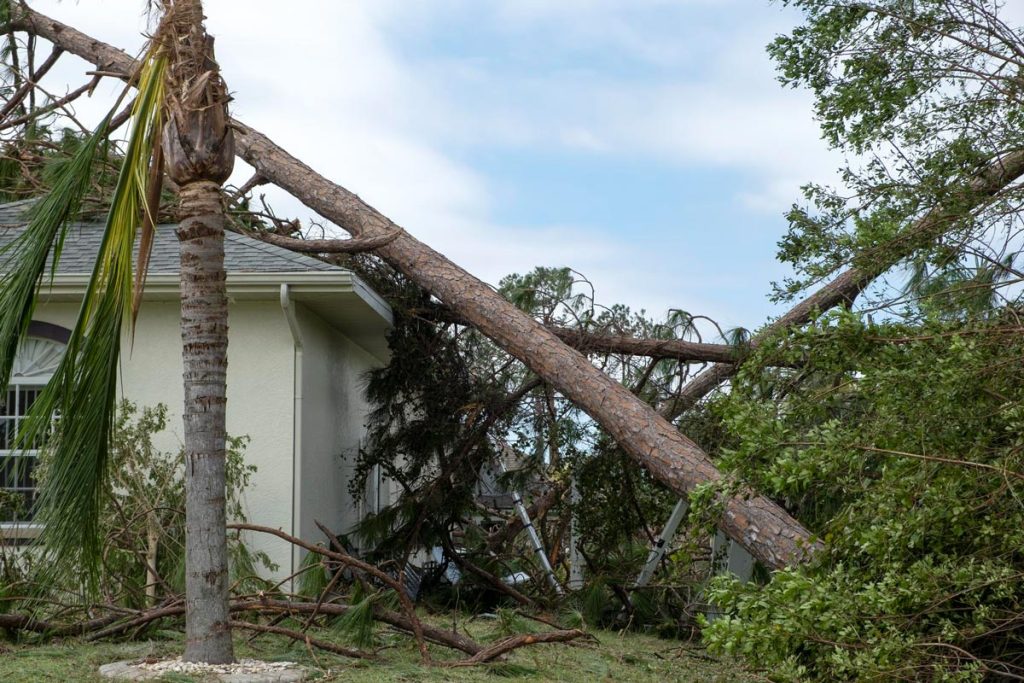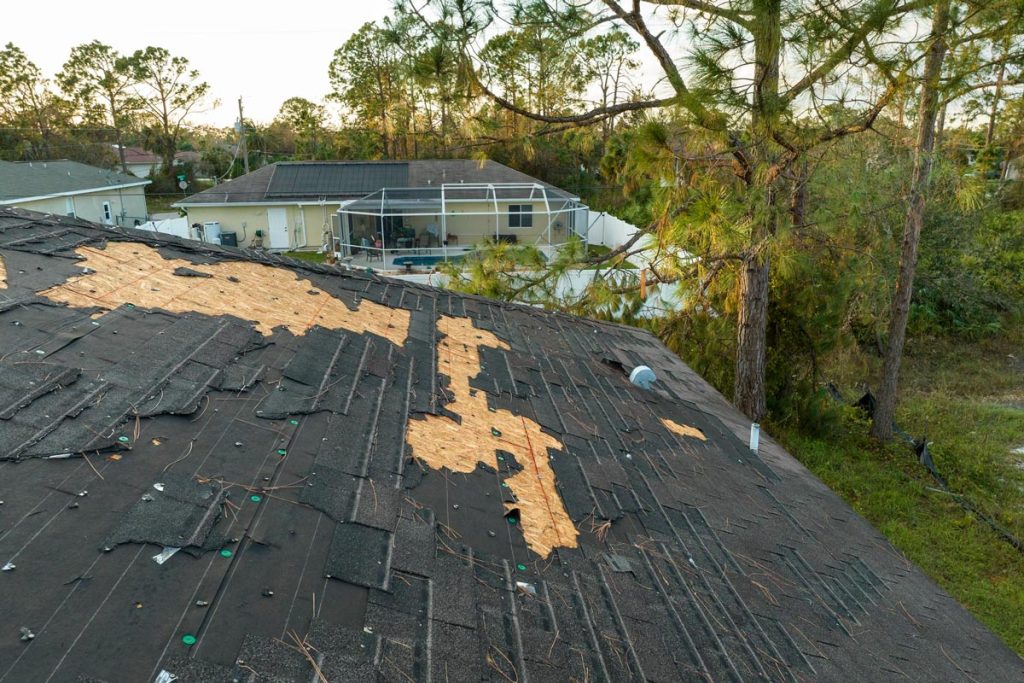
If you live in South Florida, you’ll be all too familiar with the sense of preparation and unknown that comes before a hurricane hits. During hurricane season, powerful storms can wreak havoc on homes and businesses. Ask any residential roofing company about the work that goes into properties before, during, and after a hurricane, and you’ll quickly learn that there’s a lot. While properties are generally affected, the roof most often carries the most damage. That’s why it’s highly recommended that you inspect your roof before a hurricane arrives – the best tool you have at your disposal to protect your roof is being prepared.

Preparing Your Roof for Hurricane Season
How do you make sure that your roof is ready to take on whatever the hurricane season can throw at it? It’s always recommended that you consult with a residential roofing company that can assess the state of your roof and advise on any maintenance required, or what steps can be taken to make your roof hurricane-ready.
Here are a few tips on how you can prepare.
Roof repair tips
- Regular Roof Maintenance: You should have your roof assessed by a qualified roofing company to see what maintenance may be required.
- Trim Trees Around Your Home: When a storm hits, overhanging branches near your property can cause a great deal of damage to your home and roof. You should have these branches trimmed back before hurricane season to reduce the risk of any such damage to your property.
- Secure Loose Objects: In preparation for the arrival of a hurricane don’t forget to pack away loose items in your yard such as patio furniture, grills, and trampolines. It’s a simple step to make sure that nothing can be blown against your property and cause damage.
- Install Hurricane Straps or Clips: If you live in an area that experiences hurricanes, like South Florida, you can mitigate damage by reinforcing your roof with hurricane straps or clips. What are hurricane straps and clips? These are effective devices that will secure your roof to the walls of your home. This is done if you are getting your roof re-done. They provide that added layer of protection that can be the difference between riding out the storm or having to call in the roofing specialists for repairs.
- Inspect and Clean Gutters: If your home has clogged gutters, you risk water being backed up under the shingles of your roof. It’s often a good idea to have a residential roofing company clean and assess them.
- If You Have A Flat Roof, Consider A Roof Coating: Homeowners often don’t consider the added layer of defense that a protective coating provides for their flat roof. These coatings will seal any cracks in your roof and prevent water from getting in. A residential roofing specialist can assess your roof and advise if a coating would be beneficial.

Assessing Roof Damage After A Hurricane
After a hurricane has passed and it’s safe to do so, you should assess any damage that may have been caused, especially to your roof. Call a South Florida roofing specialist to complete a post-hurricane roof inspection and advise you on any repair work required.
Here are a few steps that you can take yourself.
- Perform a Visual Inspection: After a hurricane, start by inspecting your roof from the ground. See if you can identify any signs of damage. This would include missing shingles, loose tiles, metal panels that have loosened, etc. It’s also important that you look for any tree branches that may have been broken off and blown onto your roof.
- Document the Damage: If your roof is damaged, where possible take photos. This is something that will be required if you are filing an insurance claim.
- Inspect Gutters and Downspouts: A hurricane can easily cause gutters and downspouts to become clogged.
- Examine Ceilings: Examine your ceilings for any signs of discoloration which could be a sign of a roof leak.
Repairing Your Roof Post-Hurricane
Once your roof has been assessed, you should act as quickly as possible with the repair work. As a leading residential roofing company in South Florida, ABC Roofing has helped home and business owners prepare and fix their roofs during hurricane season. If you need pre or post-hurricane assistance, our team of trained professionals is ready to help. Give us a call at 954-344-4622 or visit our website to get a roofing quote.

FAQs About Roof Repairs During Hurricane Season
Q: How can I tell if my roof is damaged after a hurricane?
A: Start by simply looking for visible signs including missing shingles, loose tiles, and debris on your roof.
Q: What should I do if I discover a leak in my roof after a hurricane?
A: If you find a leak, the first thing to do is stop water from spreading to other parts of your home. This is as simple as placing a bucket under the leak. Then, contact a roofing professional as soon as possible. Delaying repairs can lead to even more damage, such as mold growth and structural issues.
Q: Does homeowners’ insurance cover roof repairs after a hurricane?
A: In many cases, homeowners’ insurance will cover roof repairs caused by hurricane damage. It depends on the coverage you have selected with your insurer, but most often this is the standard cover. If you are unsure, ask your insurer about the cover you have in place, and what steps are required to ensure it remains valid.
Q: How often should I have my roof inspected?
A: It’s recommended to have your roof inspected at least once a year, ideally before hurricane season begins. Regular inspections help identify and address minor issues before they become significant problems.
Q: Can I repair my roof myself after a hurricane?
A: While some minor repairs can be handled by homeowners, it’s best to leave roof repairs to the professionals. Working on a damaged roof can be dangerous, and improper maintenance can lead to more extensive damage down the line. A professional residential roofing company has the experience and tools to do the job safely and effectively.
